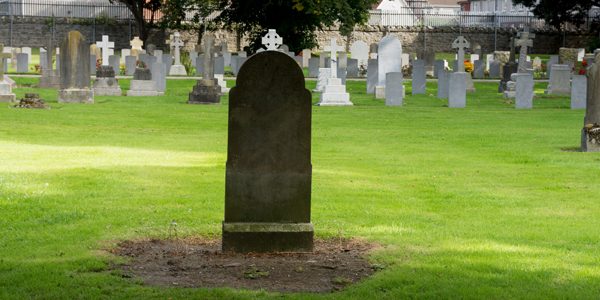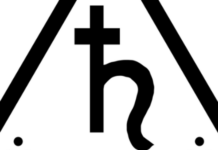 The sun is shining, birds are singing and maybe it’s a good time to think about those who came before us, our ancestors. In the west we usually reserve our thoughts of the dearly (or not so dearly) departed for the autumn space around Hallowe’en, but there’s more space in our magical practice for our gone but not forgotten loved ones than once a year when the leaves change colour.
The sun is shining, birds are singing and maybe it’s a good time to think about those who came before us, our ancestors. In the west we usually reserve our thoughts of the dearly (or not so dearly) departed for the autumn space around Hallowe’en, but there’s more space in our magical practice for our gone but not forgotten loved ones than once a year when the leaves change colour.
Ancestors are revered and worked with in a variety of practices in both very formal and informal ways. Some practices call for concrete rituals, while others are very casual, almost as if you’re calling up your great gran on the phone!
Either way, practitioners can gain a great deal of support and protection by calling on and honouring those that came before us but this can be a difficult practice for many to engage in, for a variety of reasons. The association with the dead as something as taboo coupled with our general lack of history in the West, knowing where to start may be a bit daunting. Here are some basic steps to begin an ancestor practice.1
What ancestor work is and isn’t
When we talk about working with ancestors, we’re very clearly speaking of working with the spirits of departed people who most of the time we have a blood relation to but sometimes, we do not. Contemporary western culture has made this sort of work taboo in many cases.
We often see movie and media depictions that feature calling on the dead as some sort “evil” rite and it always ends badly. “Let the dead rest!” is the sort of repeated lesson that we learn from these things but the way that ancestor work is depicted in films and books is for entertainment, it’s not how it really happens.
When engaging in this sort of work, it’s important to remember that you aren’t calling on some random spirit. To be fair, there are spirits and energies in the world that wish to cause harm and chaos, just like there are people in the living world that wish to do this. Death does not turn everyone into some magical ball of goodness and light.
Ancestor work is usually done to call on our own ancestors to support us. It’s not an Ouija board that’s guided by the unknown or some Victorian seance that’s opening the portal to the other side. For most people, it’s inviting the spirits of known loved ones to help guide and protect them. It’s not Bloody Mary, it’s your auntie who passed three years ago. Unless you two didn’t get along, that’s not so scary is it?
Once you are confident, you can go on to summon other spirits, but you must be careful and always protect yourself when doing such work. It is not to be taken on lightly and is not something for very new workers to engage in.2
Another important thing to remember is that you are not worshiping your ancestors. These spirits are not gods or goddesses. They are people and we are inviting them to spend time with us. Sometimes they just drop in like when your uncle just stops by because he was in town.

Getting started with ancestor work
Finding a place to start is a tricky prospect for many people. There’s a lot of misinformation about “summoning” the dead in the world, which can lead people who are inexperienced into dangerous situations. There are also people who do not know much about their own families due to a variety of circumstances. Even so, you can still do this work.
For beginners, there is no need to involve yourself in complex rituals or rites. Start small with an ancestor altar and offerings. There are many ways to do this, Susan Starr covers a brief practice in creating a small and personal ancestor altar.3
Even if you don’t know your ancestors, due to things like adoption or estrangement from family, don’t be discouraged! We all come from somewhere. If you don’t have photos or personal items that you can use on your altar, find pieces that relate back to the people. This can be a certain type of cloth or artwork from the area you were born in. The goal is to make a connection that will allow the spirit to be drawn to you.
Some people believe that only blood relatives can be called upon, but I think that any person in your past who is no longer with us in this realm can be called out to and honored on your altar. This includes adopted family as well as neighbors that made us feel safe and happy.
Your ancestor altar is your personal space so you should include whatever brings you closer to those energies.
Regardless of how you set up your altar, you should make offerings such as food they like or drinks they enjoyed. Many people suggest alcoholic beverages or cigarettes. If you know your ancestor was someone that enjoyed that and are comfortable with such items in your home, feel free to use that as an offering. If that is not the case, however, then you can offer part of your meals. As if you’re inviting them to dinner.
You should spend time at your ancestor altar. This may not be daily meditation for you, but you might check in, and keeping it tidy is recommended. Have a chat with them every now and then, even if it’s about nothing, make them feel welcome and they are sure to help you, even if you don’t realize it.
What is ancestor work good for?
If you are already working with deities or energy, you may feel like adding this extra layer is pointless. Ancestor work isn’t something everyone engages in and for some people it’s simply not a path they connect with. That being said, for those that do connect with this work, there are many benefits.
Ancestors help guide and protect us. These aren’t things we have to ask for, we don’t need to petition them for their help as we do other spirits and energies. The work of building altars and giving offerings is not about asking so much as it is about creating a welcoming space and letting them know you are open to their guidance.
How we experience this guidance differs from person to person. Some people get “bad feelings” about a situation that they have no reason to feel negative about, for example. For others it is putting obstacles in their way until they turn to the path that will be most beneficial to them. There is no one way this is handled (and they can get pushy).
Protection is similar. Sometimes it is just blocking negative energy other times, it is more direct. Again, there is no one right way this manifests.
It is important to remember that the role of ancestors is not like the work that may be done with specific spirits or energy in which we petition for a singular result. Though they may help and support in a specific aspect of your life, such as getting a new job or finding a better home, their role is not to just “make things happen.”

Working with non-ancestors spirits and warnings
As I mentioned earlier, you can work with spirits who are not in any way related to you. These spirits are petitioned for very specific, “one time” use. Chris Allaun discusses his experience with an unknown spirit in this article, but this sort of work is not to be taken on lightly.4
If you wish to work with spirits in general, then it is best to start with your ancestors and then branch out. This will also help create a barrier for you against the negative energy that some spirits have with them while you search for one that is suitable to help you with whatever your problem is. This type of work is very specific and goes beyond simply setting up an altar.
Another thing to be wary of is calling on a spirit that has recently passed. Give your loved ones time to settle after they pass and time for yourself to work through your grief. When working with ancestors, it is best to be more joyful and it is hard to hold space for happiness when you are working through your grief.
Ancestor work is very personal work. How you engage depends on your personal history and culture. If you are engaging in this path, and spirit work as a whole, then you should be very mindful that every spirit is different and should be treated as an individual. Your offerings should be suitable, you wouldn’t leave a glass of whisky for your great-grandmother who hated alcohol. You wouldn’t offer a spicy dish to someone who only eats the blandest of foods. Regardless of what a book or website may say, there’s no one size fits all option.
Ancestors give us connection
Ancestor work has one other major benefit: it provides us with connection. Regardless of which path you follow, if you’re doing spellwork, your dealing with powers outside of yourself. Ancestors provide a stable connection to the energy outside of ourselves, a relatable one that we can easily connect to.
Ancestor work isn’t a flashy sort of magick. It’s not something that is done to create a specific change; rather, it is a way to help ground and focus us, to create a stable sense of protection around ourselves while we do our work.
For more information about working with your ancestors, check out Kalagni’s excellent course, Ancestor Work Fundamentals.
Image credits: chuck b. and William Murphy
- See also Chris Alluan’s article, “Connecting with the dead.” [↩]
- For more information, check out Denise Alvarado and Madrina Angelique, Workin’ In Da Boneyard (Prescott Valley, AZ: Creole Moon Publications, 2012). [↩]
- See Susan Starr’s article, “How to build an ancestor altar.” [↩]
- See Chris Alluan’s article, “Petitioning the dead in magick.” [↩]







